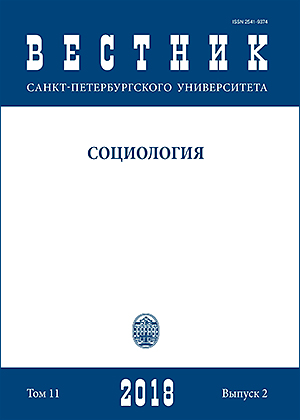Civilizational identity and social changes
DOI:
https://doi.org/10.21638/11701/spbu12.2018.202Abstract
The article considers civilizational groups of countries from the point of view of cultural characteristics proposed by G. Hofstede. An attempt has been made to determine the civilizational identity or specificity of civilizations through the cultural characteristics of G. Hofstede. A comparative analysis of civilizations is carried out on the basis of quantitative characteristics. A composition of cultural characteristics for civilizational groups of countries is presented. Each of the considered civilizational groups of countries has a specific set and a specific composition of cultural characteristics. The average value of these characteristics is determined and their interrelation with social changes is shown. The influence of cultural characteristics on social changes is analyzed. The integral indicator of economic changes is GDP per capita at purchasing power parity, and as a measure of political — the rating of freedom. Determining the used cultural characteristics, which determine the direction and results of social changes. Among the characteristics of culture that have the greatest impact on economic changes are: avoidance of uncertainty, individualism/collectivism, power distance. The greatest influence on political changes is provided by such characteristics of culture as: individualism and power distance.
Keywords:
civilization, civilizational groups of countries, values, cultural characteristics, social changes, power distance, individualism, collectivism, avoidance of uncertainty, long-term orientation, short-term orientation, masculinity, femininity, freedom rating, GDP per capita
Downloads
References
References
Downloads
Published
How to Cite
Issue
Section
License
Articles of "Vestnik of Saint Petersburg University. Sociology" are open access distributed under the terms of the License Agreement with Saint Petersburg State University, which permits to the authors unrestricted distribution and self-archiving free of charge.




